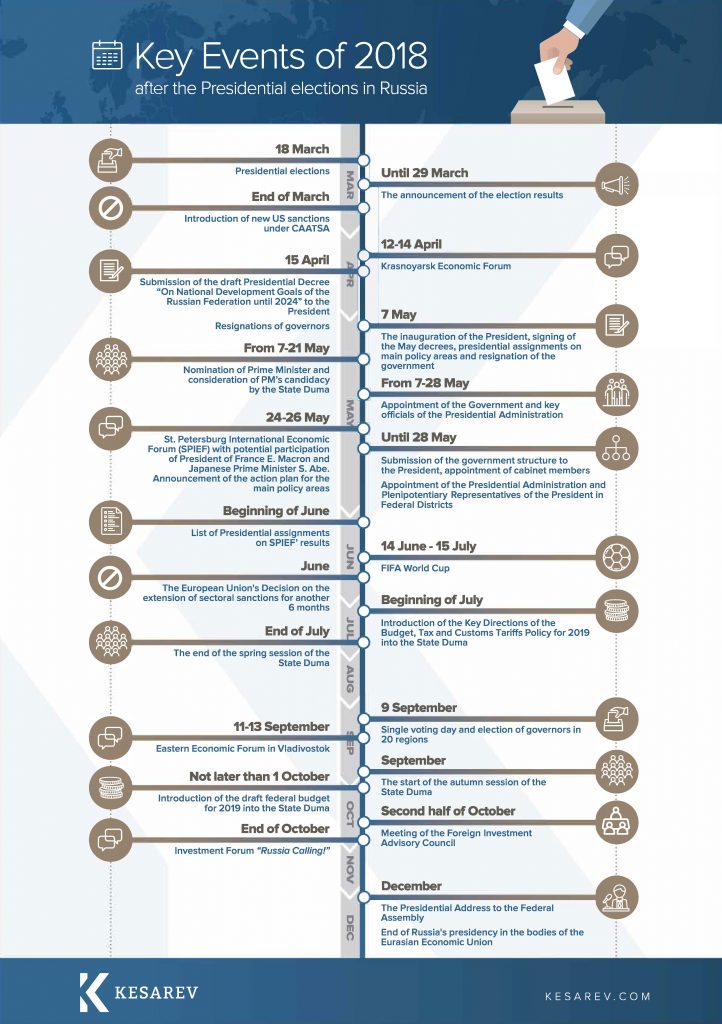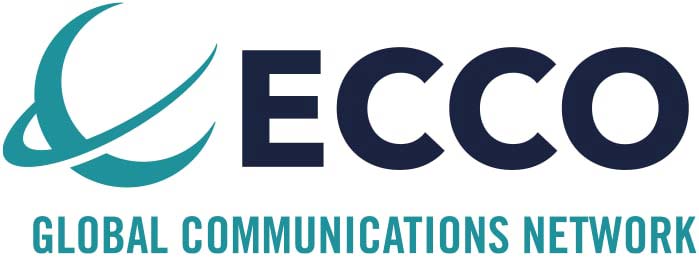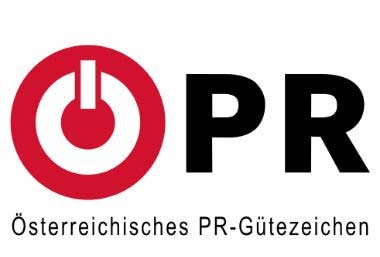In a new report, Interel Partner Kesarev Consulting analyze the aftermath of the Russian Presidential election on March 18, 2018, that resulted in Vladimir Putin’s overwhelming victory and re-election to his second (fourth) and very likely to be the last term in office. The report focuses on key forthcoming developments of 2018 that will be triggered by Putin’s re-election and determine Russia’s economic policy, its impact on the regulatory environment, and key parameters of the business climate including: tax system, budget structure, public investment, and monetary policy among many other issues.
The most significant developments related to the Russian elections are expected after the President’s inauguration and will take place between May and December 2018.
Staff reshuffles in the Government
The composition of the new Government will depend on the figure of new Prime Minister.
If Dmitry Medvedev will stay in office, the current composition of the Government may be preserved. However, the rotation of those ministers, who were criticized by the President or have controversial reputation, is highly possible.
In case of Medvedev’s appointment, some changes at the level of deputy PMs are also possible. One of the scenarios is appointing a “strong” First Deputy PM in charge of strategic development and economic policy issues.
In the case the Prime Minister is changed, various scenarios are possible – from large-scale reform of the executive branch to preservation of current structure of the Government. The most radical option is the merger of the Government and Presidential Administration.
The Government’s restructuring in this scenario may include changing roles of Deputy PMs, merging ministries and agencies, reforming “hybrid” institutions (project office, etc.).
Staff reshuffles in the Presidential Administration will depend on degree of changes in the Government. The probable options are further increase of political status of the Administration in economic and social policy, reforming the system of President’s representatives in federal districts, etc.
The framework of the presidential program for 2018-2024
Staff reshuffles in the Government and Presidential Administration are considered as a condition to implement the presidential program for the next term in office.
The program will be presented in May 2018 in the form of Presidential decrees. The most likely platform for presenting the program is the Saint Petersburg International Economic Forum (SPIEF).
Most likely, the program will include such policy initiatives as fiscal maneuver (redistribution of budget spending in favor of social policy issues), the growth of labour productivity, modernization of infrastructure, digital economy, and development of non-primary exports.
After the presidential inauguration and appointment of the new Government, the discussion on high-level issues and alternatives in economic policy should resume. These issues include:
• Tax system reform
• Pension reform and possible retirement age increase
• Increasing/reducing state involvement in the economy
• Addressing problems of the banking sector; increasing/reducing the government’s share in the financial sector
• Changing priorities of budget spending, optimizing military and security spending
2024 Dilemma
Finally, as the current term may be the last for Putin’s presidency, the composition of the Government and Presidential Administration, staff reshuffles, economic reforms, and other issues become closely linked to the power succession issue.
Putin can see in this situation the risks of decline in elites’ loyalty and possible political destabilization. Several scenarios for maintaining power in the period after 2024 are currently considered:
Finding a compromise between political elites and nominating a consolidated successor in 2024
Creating new authority, which may be headed by Vladimir Putin after the end of his term of office without significant amendments of the Constitution
Reviewing the constitution and removing the restrictions on the number of presidential terms
Expanding the Government’s powers and reducing the Presidential ones, with Putin moving to the post of Prime Minister after 2024
Download
Full report Russian Presidential Election: First Year of Putin’s Last Term




